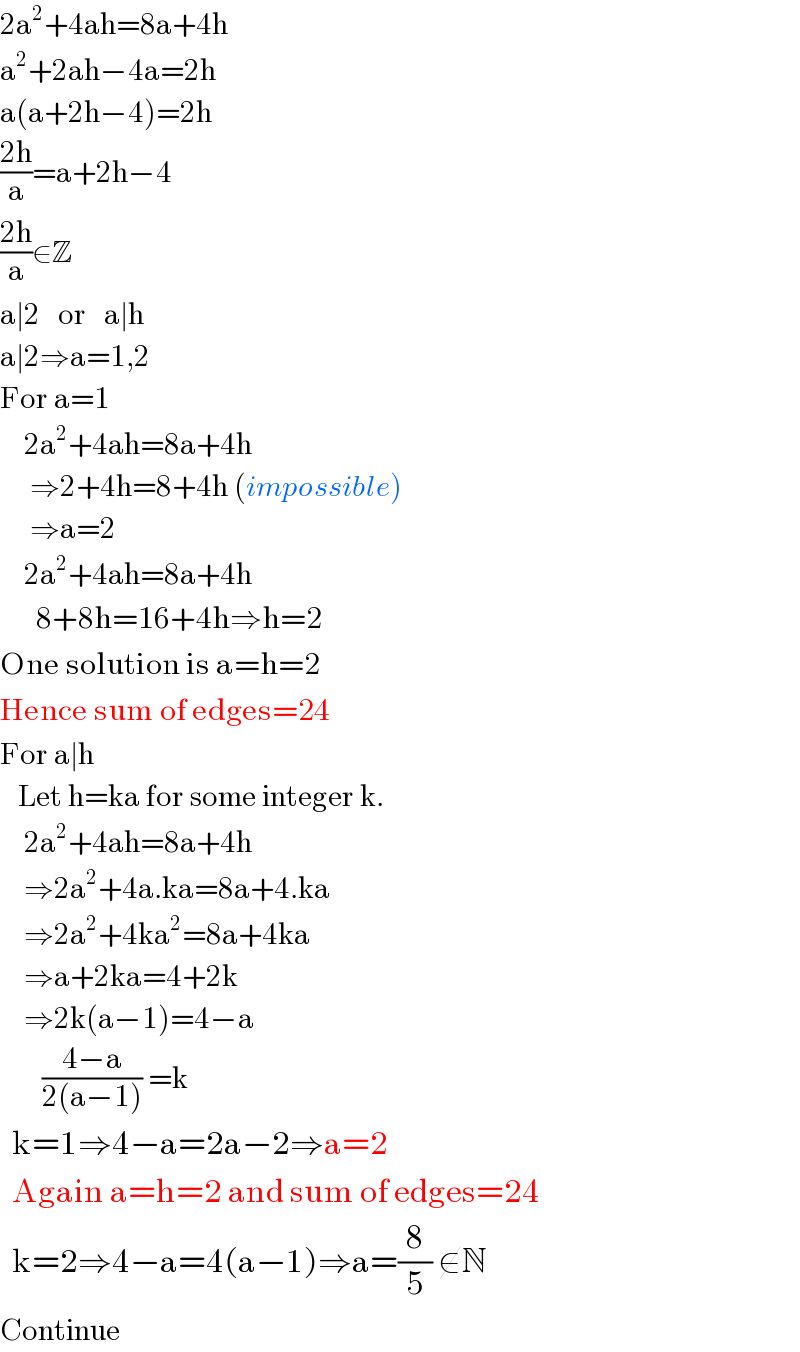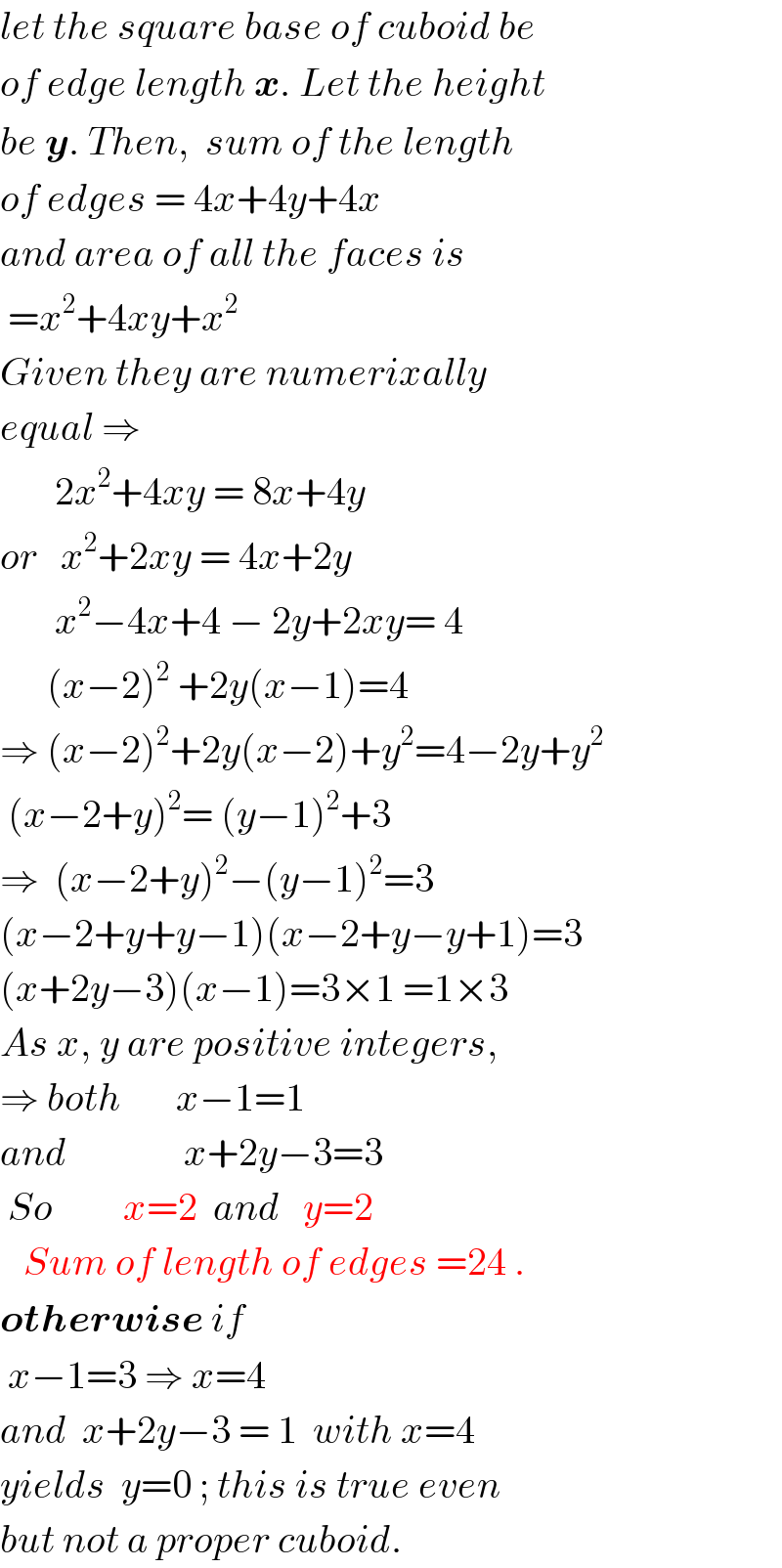Question Number 23537 by math solver last updated on 01/Nov/17

Commented by math solver last updated on 01/Nov/17

Commented by ajfour last updated on 01/Nov/17

Commented by math solver last updated on 01/Nov/17

Commented by math solver last updated on 01/Nov/17

Commented by math solver last updated on 01/Nov/17

Commented by Rasheed.Sindhi last updated on 02/Nov/17

Commented by ajfour last updated on 01/Nov/17

Commented by math solver last updated on 01/Nov/17

Answered by ajfour last updated on 01/Nov/17

